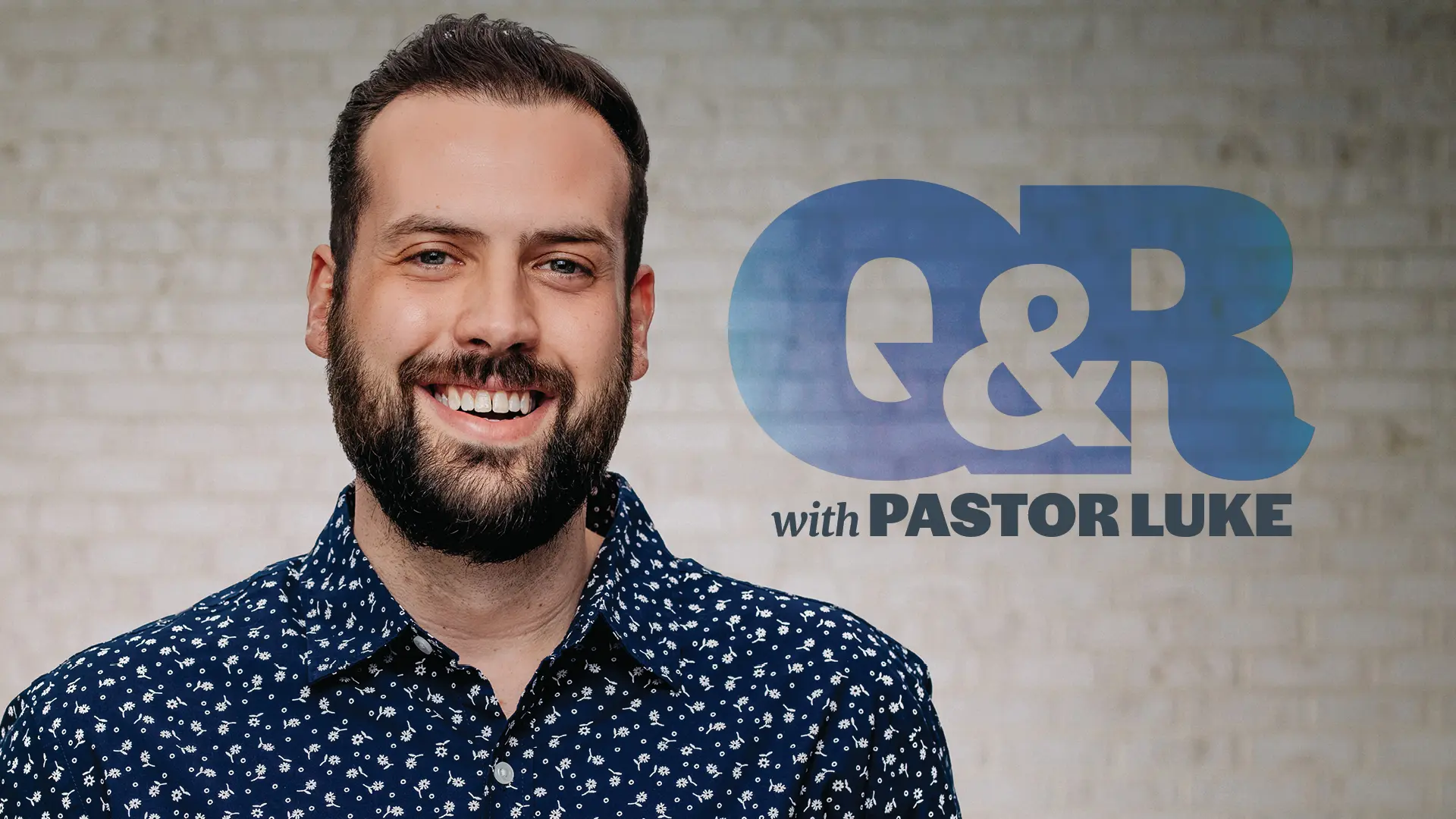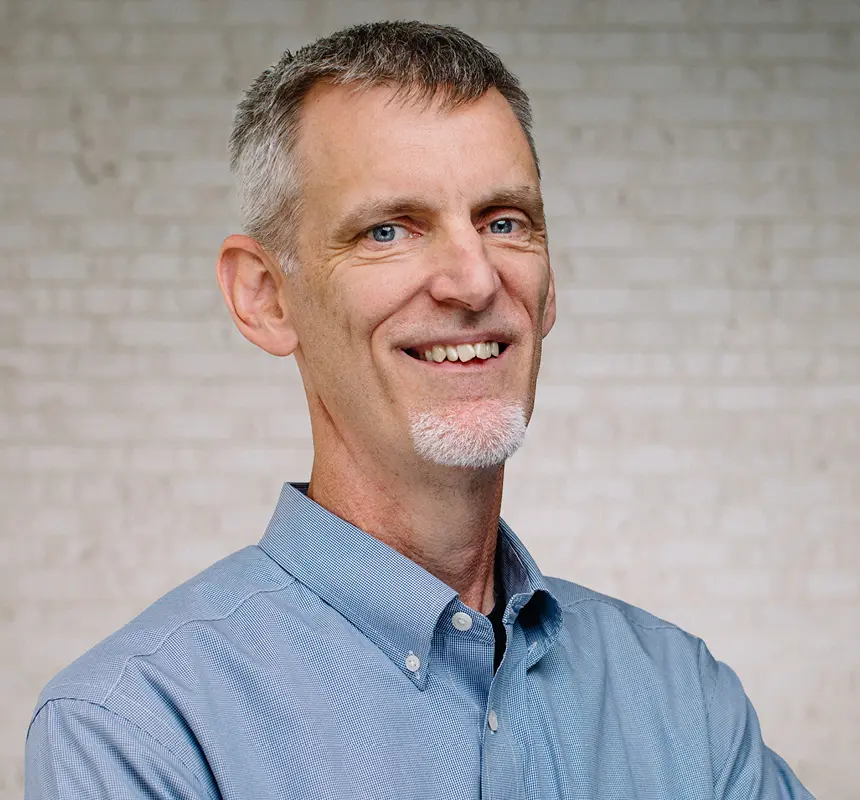The new sermon series on Exodus: It’s a familiar story, and yet I’ve heard you mention that you see new things every time you study a book like this.
The living Word of God never ceases to amaze me, especially as the Holy Spirit inspires something new for a new time. I don’t mean that it has new meaning or new implications, it’s just that it hits me in a different place every time I read it.
As we are going through Exodus, the Lord has really been encouraging and ministering to me through it. The lives of Moses and Aaron, Pharaoh’s hardened heart, the people of Israel. More often than not, we want to identify ourselves with Moses in the story. But what if there are times when we’re more like Pharaoh, with hardened hearts toward what God is calling us to?
There are things that we can pick up on throughout this Exodus narrative that are still very much applicable to our lives today. To say, I see the way I harden my heart toward God and what he desires for me, like Pharaoh did. Or, I see the way I question or doubt God, like Moses did. So there are different opportunities for us to glean wisdom, understanding and life application through these stories that we grew up reading and hearing. With that familiarity, sometimes we miss things.
As much as we benefit from and love studying the epistles, there’s something compelling about story.
It draws you in. And I have really enjoyed going through the epistles. But with Joshua a few months ago or now going through Exodus, one of the things I have thoroughly enjoyed is being able to pick up on the narrative — knowing what’s coming up but also where we’ve already been. And being able to see the thread of continuity of God’s grace and redemption through all of it.
As you’ve been studying Exodus for these sermons, is there something that has jumped out to you? Where you’ve said, “I never noticed that before”?
I’ve been really intrigued with the plagues. I hope that doesn’t sound too dark or morbid. Like I mentioned, we all would say we like to identify with Moses. But what if I’m actually more like Pharaoh than I’m willing to admit?
When God is unleashing those plagues on Egypt, he’s attacking their false gods. He’s trying to prove to Pharaoh, even in the hardness of his heart, that he is greater. That he’s more gracious. That he’s freeing and loving. But because of the hardness of Pharaoh’s heart, he’s unwilling to recognize it.
It’s a difficult book sometimes. God specifically says he will harden Pharaoh’s heart. And I think, Why would he do that?
That’s something I’m studying. In a couple of weeks, we’ll be in chapters 7 through 10, looking into that. The more I read it, the more I see the Lord is allowing, and handing Pharaoh over. Pharaoh’s mind and heart were already made up. And so the verbiage of that is actually more in line with the Lord saying, “All right. You’ve already handed yourself over. Therefore, so be it.”
The plagues can be a tough subject, too, if you start thinking deeply about what happened.
Israel wasn’t immune to all the plagues. They had to live through some of them as well. So often, we have this view as if, Because I’m in Christ, I’m not going to have to go through difficulty. I’m not going to have to go through any uncertainty or times of chaos or struggle. Well, no, that’s not true. God allowed the Israelites to go through that. And I also think it was a way God used to remind them that I am the one true God. I’m greater than these false gods in Egypt.
You’ve mentioned that so many parts of Exodus foreshadow the gospel.
When it talks about the darkness falling on the land – it’s called a darkness that could be felt. As I read that, it got me thinking about the darkness that was felt as Christ breathed his last that afternoon as he was hanging on the cross at Calvary. The amazing thing is, darkness didn’t last.
It’s incredible to see the gospel woven throughout. As we look at Passover, the plagues and then the freeing and rescue of the people of Israel out of Egypt. Even in week 1, we started with the fact that this is ultimately a book of salvation.
The whole Bible tells us, vividly, that God’s people are not immune from suffering. And yet, we have so much trouble accepting that.
Yeah. We think God is punishing us when we’re going through difficulty or times of pain and suffering. I know I’ve thought that at times. I’ve had to have my wife and others around me say, no, that’s not who God is.
We can look at this life of following Jesus and say, “If you don’t think that the life of Christianity is one of suffering, look no further than Christ.” If we are little Christs —which is what Christian means—why would we not also walk through times of suffering in our lives? The difference is, where the world would blame God for it, will we be the ones who turn to God in it?
OK, change of subject. We have some combined worship services coming up, right?
(The next one is Mother’s Day, May 12, with one service at 10 a.m.)
I’m excited about them. It gives us an opportunity to worship together as a church family. It’s healthy for us to do that. So when opportunity presents itself, I think we should take advantage of it.
And it looks like we’re planning more Summerwood Sunday mornings this year, too?
Memorial Day, Father’s Day, Fourth of July and Labor Day weekends we’re doing a combined service outside at 10 a.m. Last summer we weren’t able to do that because our tech director was just coming on and some of our maintenance crew was out. This year we have time to focus on getting Summerwood ready and we’re looking forward to being able to use it more.
We’ve also had people in the surrounding neighborhood start attending First Free because they heard the services outside.
Steve Ralph is retiring sometime this year. How is the search for a new executive minister going?
We knew when we started with the search firm that they would be presenting the first set of potential candidates sometime in May. So we’re still in a process of prayer as they are interviewing the first group, and then our elders and Senior Leadership Team will spend time interviewing potential candidates as well.
The church lobby this month has tables for both Reach Rockford and Global Outreach. Was it intentional to feature both together?
Yeah. We view it all as missions and being missional. Some are here in our own back yard and some are overseas. We certainly want to highlight all of the missionaries and organizations that we support, but we also want to draw people’s attention to the ministries or organizations that we support and are closer to home. So often, we have seen missions as something that you have to jump on a plane to do. We have tried to make clear that the moment we leave the parking lot onto Spring Creek or Mulford, we’re on our mission field. It’s just a matter of crossing the street sometimes, or even bringing someone here to church.
What do you hope happens around those tables in the lobby this month?
I hope people will walk up and seek to learn more about the organizations and the missionaries that they’re seeing on the boards. This is one of the ways that we can better equip and prepare our people to engage in the missions mindset—to know that there are plenty of opportunities. Oftentimes, people don’t serve just because they don’t know. Or people don’t give just because they don’t see the need. So this is an opportunity for an easy on-ramp to find out more. Not just to get educated, but to become engaged.





0 Comments